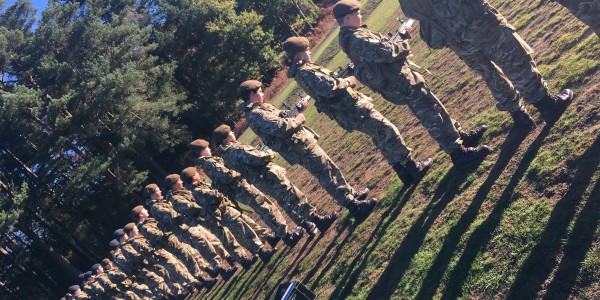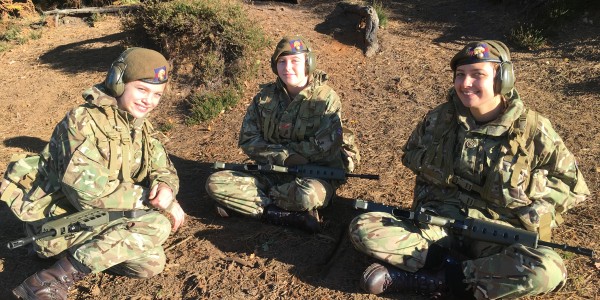


In the Secondary phase each subject will be taught with rigour, distinction and depth. We aim to nurture, challenge and inspire in everything we do at CFS, in and outside the classroom.
Curriculum Development & Learning
For further information on our approaches to curriculum development and learning in the Secondary phase, please see our ‘All-Through Curriculum’ page here.
Homework Guidance
A copy of the Secondary Homework Guidance policy can be found on our Policies page here.
Key Stage 3
At CFS, our three year Key Stage 3 enables our pupils to develop the essential skills which they will apply to their GCSEs and post-16 study. Our pupils learn to be independent and flexible in their learning. We also work hard, through our Middle School model, to ensure that pupils are proactively supported through the transition from Primary to Secondary education with a significant reduction in the all too common ‘Year 7 dip.’
Most pupils learn two languages in Year 7 before specialising in Year 8. For those pupils who require support in reading we provide intervention from specialist teaching staff.
Fortnightly lesson allocation is in the table below and you can view the Long Term Plan for each subject by clicking on the number in the table. Each lesson is 55 minutes long.
| Subject | Year 7 | Year 8 | Year 9 |
|---|---|---|---|
| English | 10 | 9 | 9 |
| Maths | 10 | 9 | 9 |
| Science | 7 | 8 | 8 |
| History | 4 | 4 | 4 |
| Geography | 4 | 4 | 4 |
| RS | 2 | 2 | 2 |
| Spanish | 2 | 4 | 4 |
| French | 2 | 4 | 4 |
| DT | 2 | 2 | 2 |
| Food | 2 | 2 | 2 |
| Art | 2 | 2 | 2 |
| PE & Games | 4 | 4 | 4 |
| Music | 2 | 2 | 2 |
| Drama | 2 | 2 | 2 |
| Dance | 2 | 2 | 2 |
| Computing | 2 | 2 | 2 |
| PSHE | 1 | 2 | 2 |
| Total | 60 | 60 | 60 |
Key Stage 4
At CFS we have a two year Key Stage 4. When choosing their GCSEs in Year 9, pupils are allocated one of three pathways, based on prior attainment, our current knowledge of the pupils and their GCSE aspirations. In all three pathways, pupils study GCSEs in English Language, English Literature, Maths and Combined Science (AQA Trilogy course).
All pupils must also study at least one Humanities subject or Modern Foreign Language, with those in Pathway One studying both. Pupils following Pathway Two are also strongly encouraged to choose both a Humanities and Language, in order to achieve the English Baccalaureate. The remaining option choices are open.
The majority of pupils study nine GCSEs, with pupils in Pathway Three completing eight in order to provide them with additional support in English, Maths and Life Skills.
We respond to pupil voice when deciding on the option subjects that are available for each cohort, but offer a wide range of traditional academic and creative subjects at GCSE, including: Design Technology, Food and Nutrition, Dance, Drama, Music, Business Studies, Media Studies, Computer Science, Triple Science, PE, Religious Studies and Statistics.
Fortnightly lesson allocation can be found in the table below. Each lesson is 55 minutes long.
| Subject |
Year 10 Fortnightly |
Long Term Plans Year 10 |
Year 11 Fortnightly Lesson Allocation |
Long Term Plans Year 11 |
|---|---|---|---|---|
| English | 9 or 10 | English | 9 or 10 | English |
| Mathematics | 9 or 10 | 9 or 10 | ||
| Science |
10 |
Biology Chemistry Physics Combined |
10 |
Biology Chemistry Physics Combined |
|
Option Subjects |
6 lessons |
History |
6 lessons
|
|
| PE | 4 | Games | 4 | Games |
| Personal development (inc. PSHE, RE and SCC) | 3 | PSHE | 3 | PSHE |
| Total | 60 | 60 |
